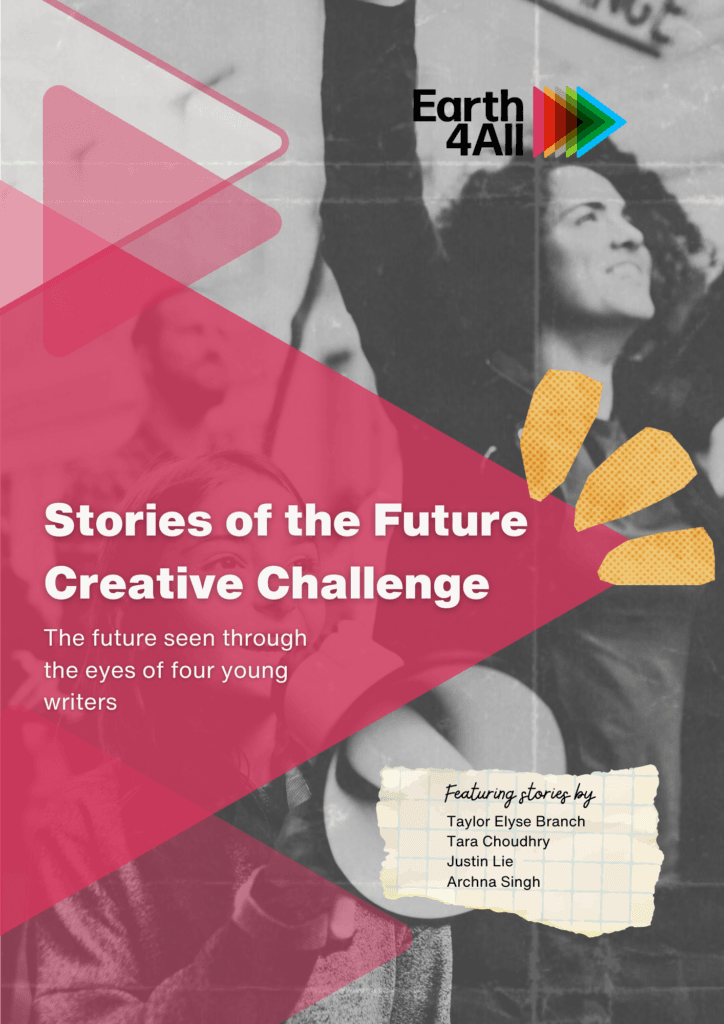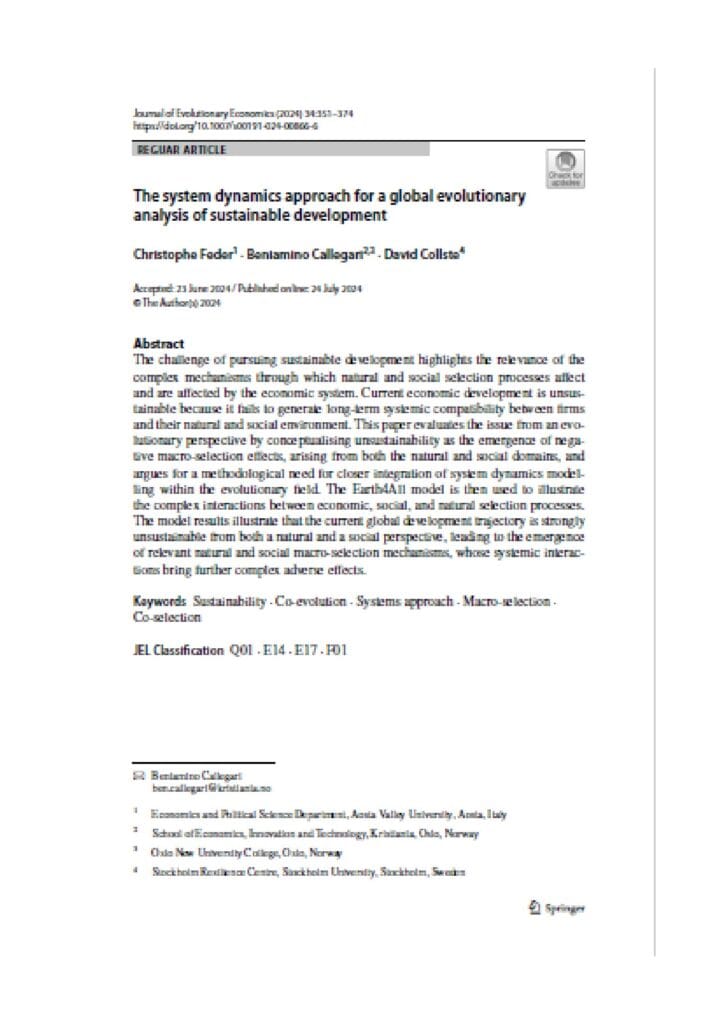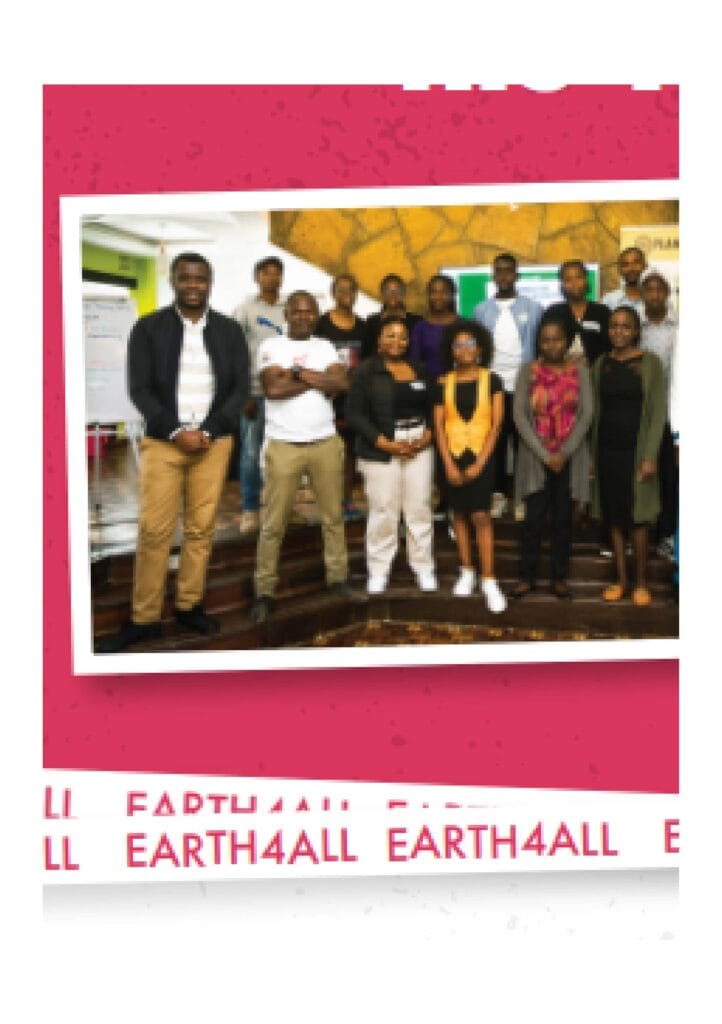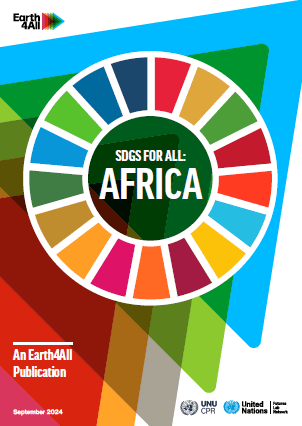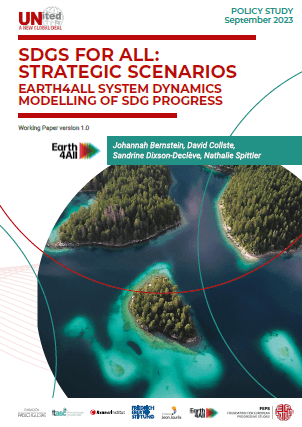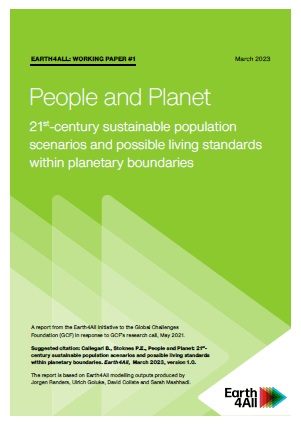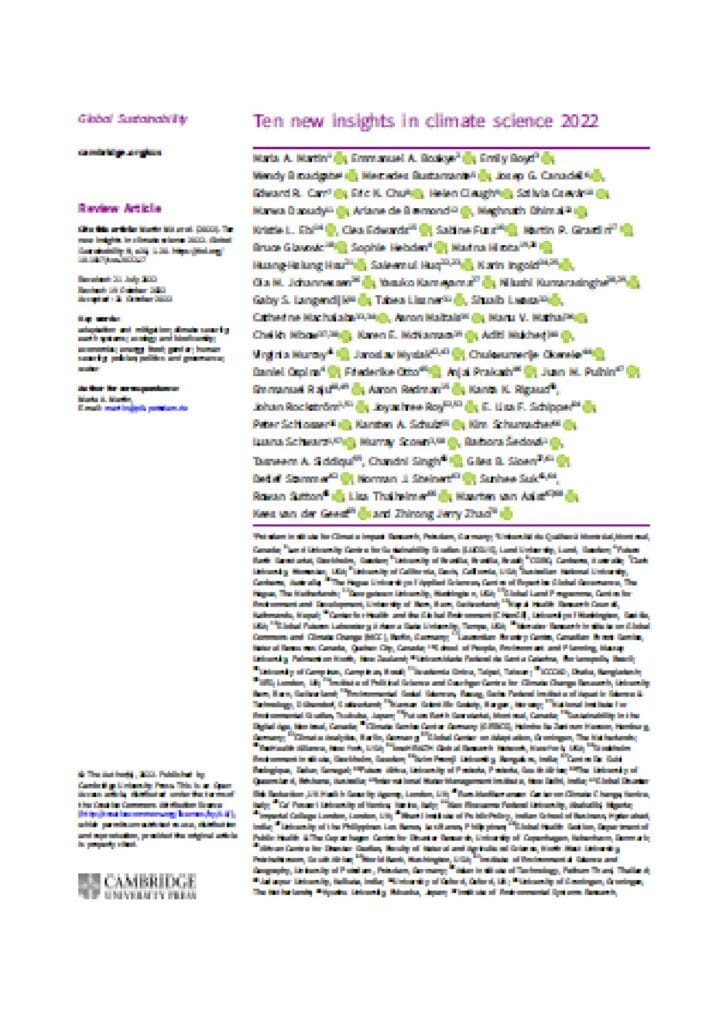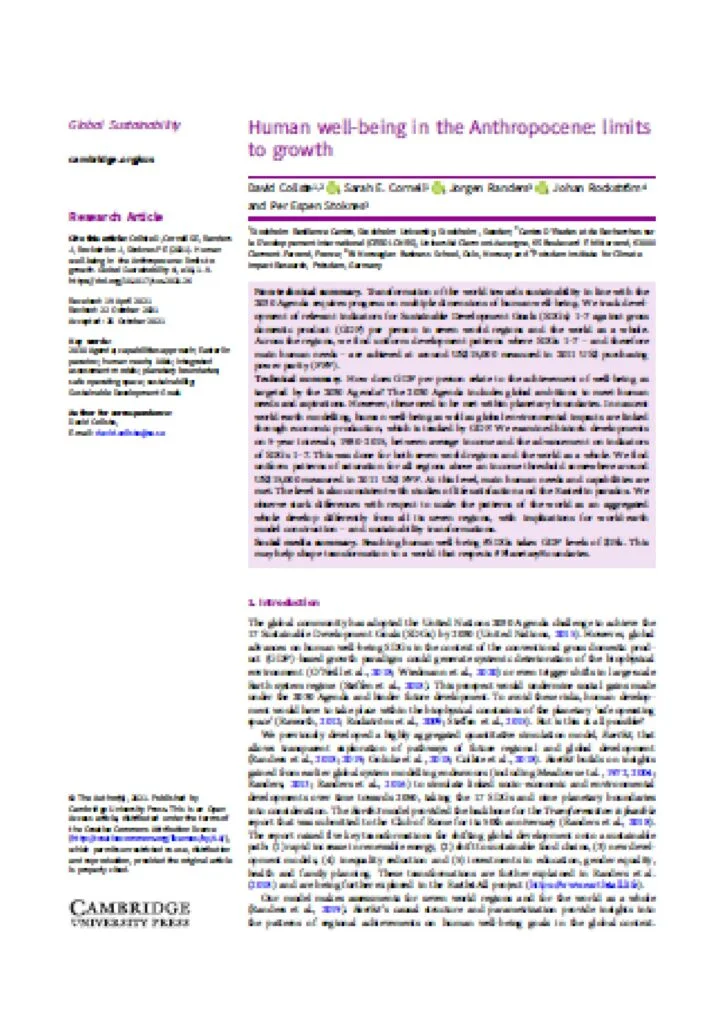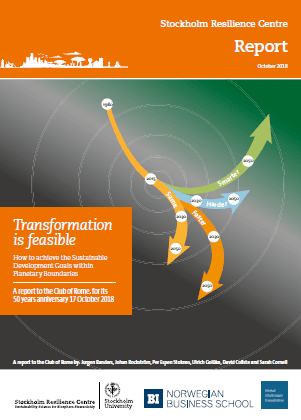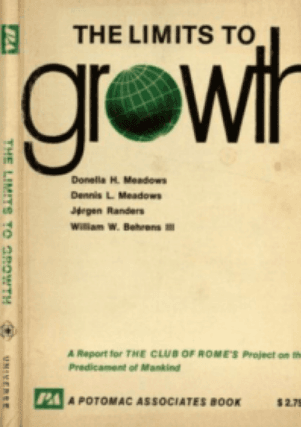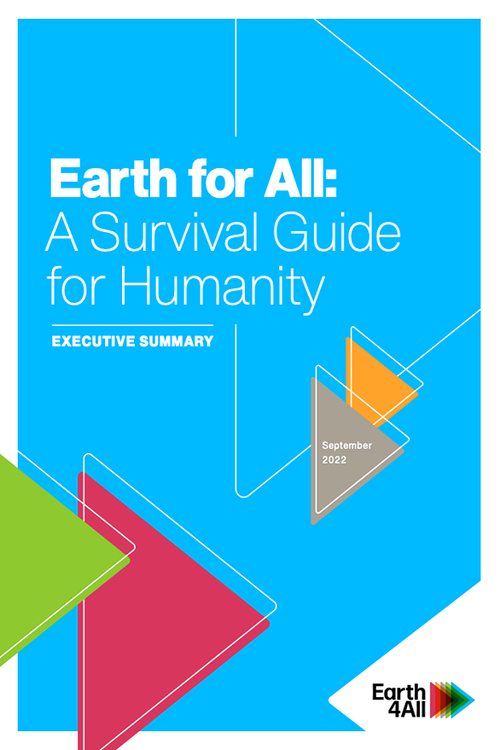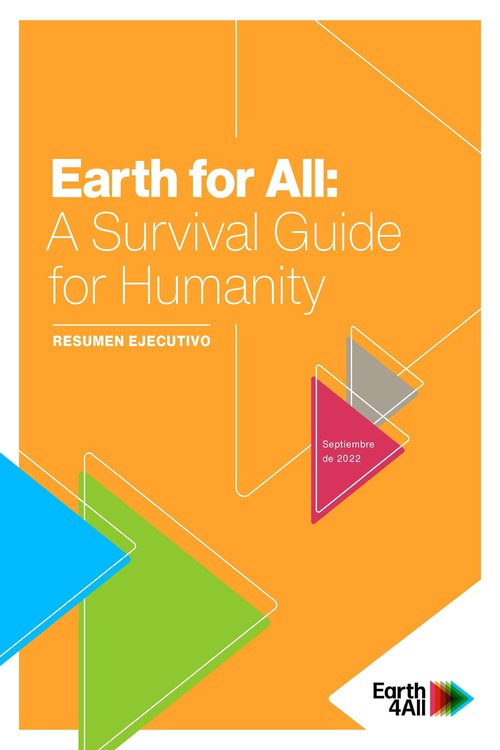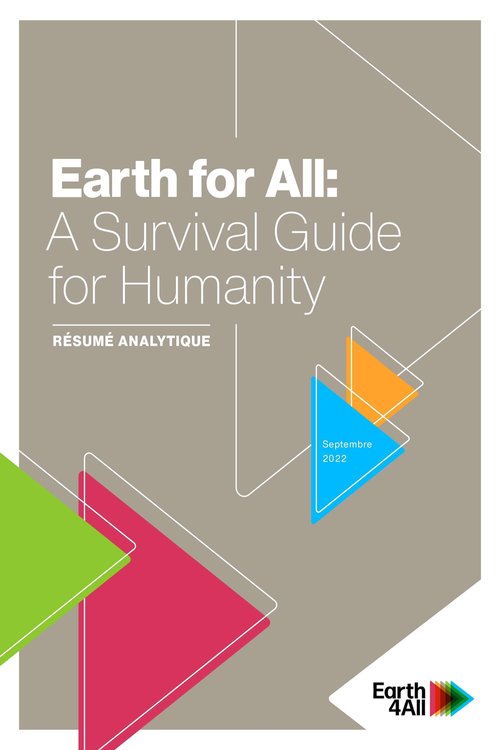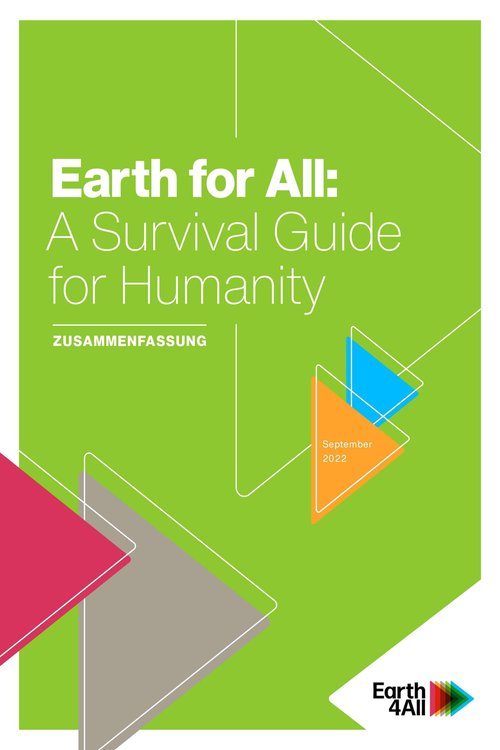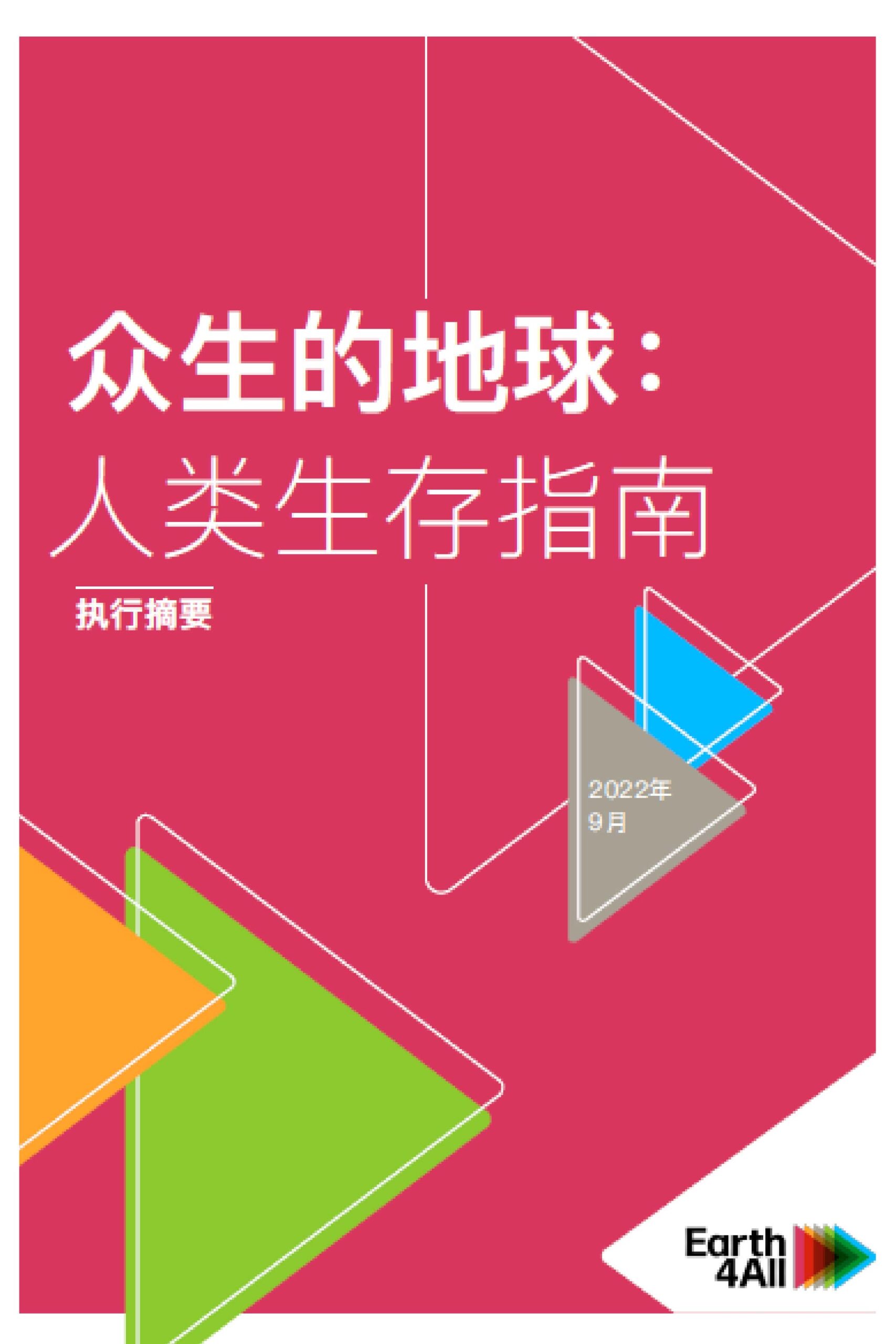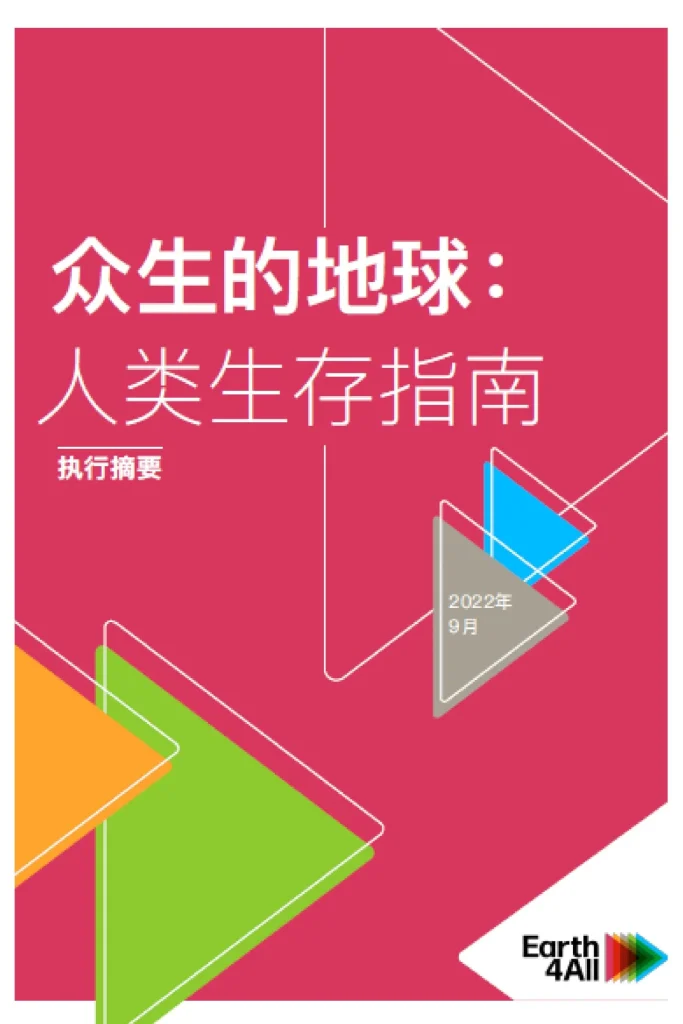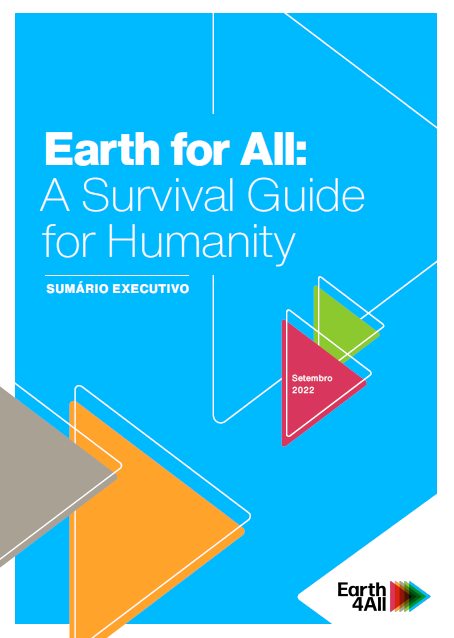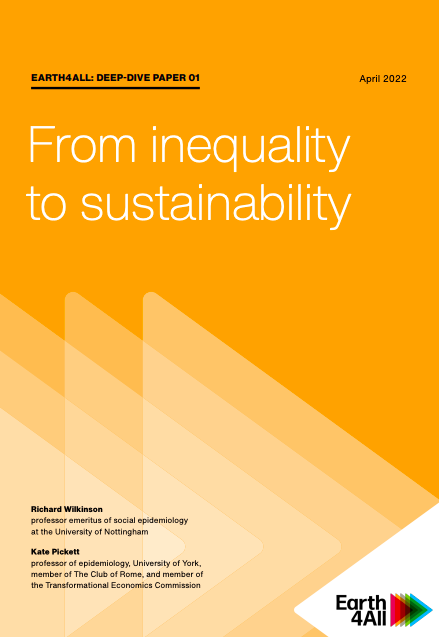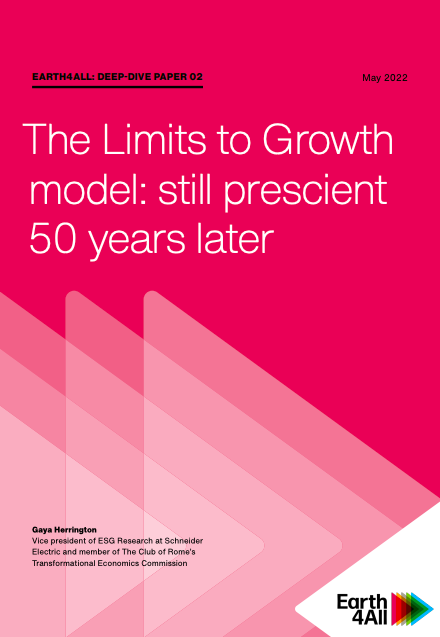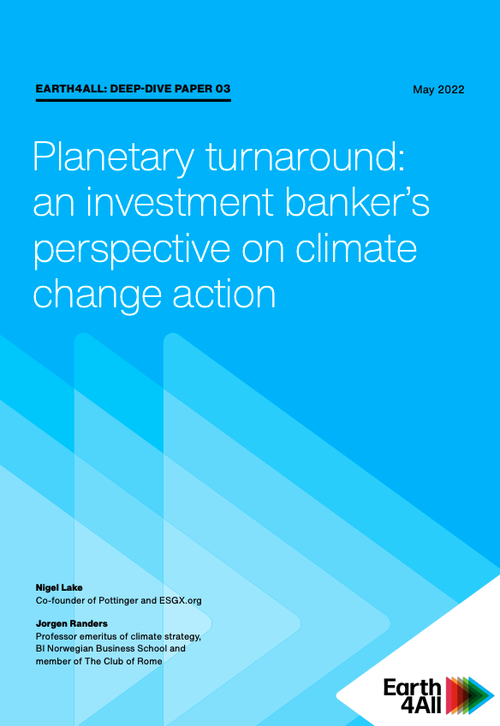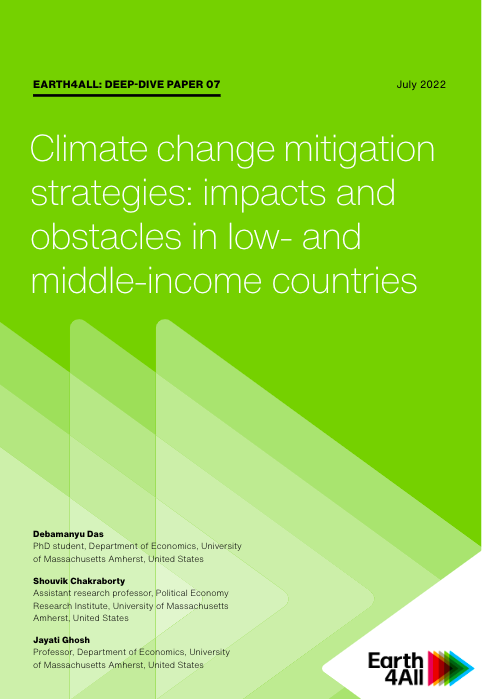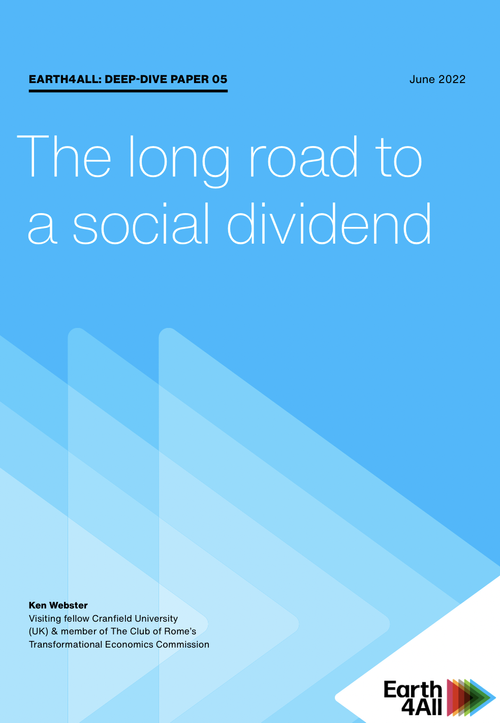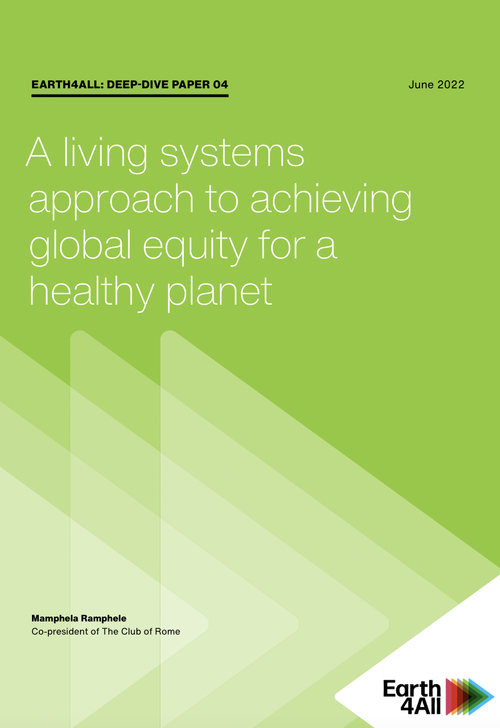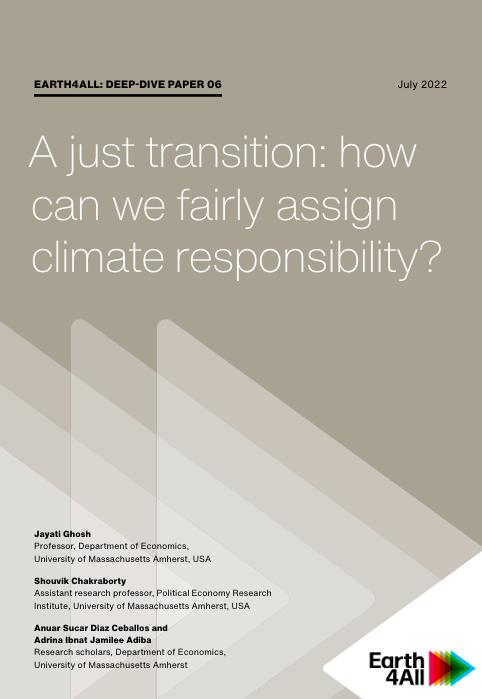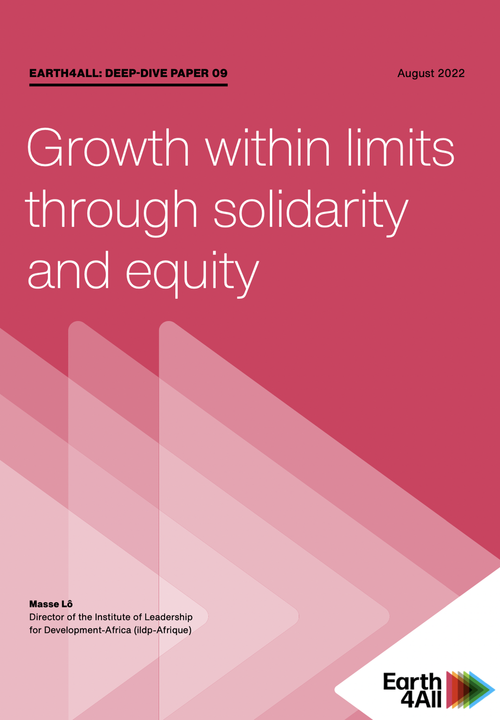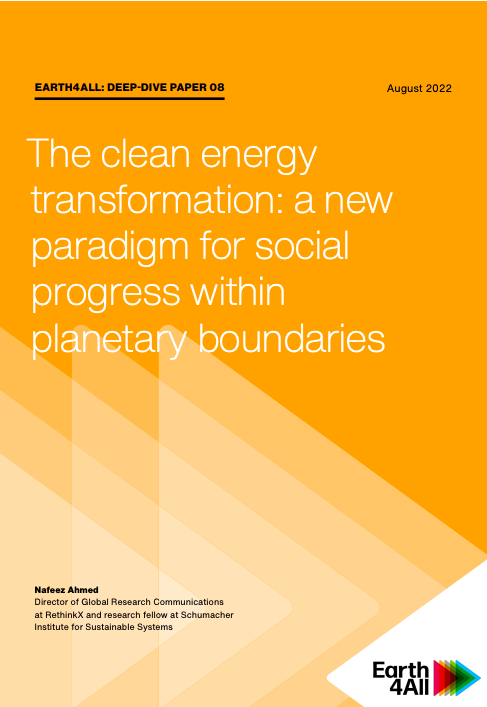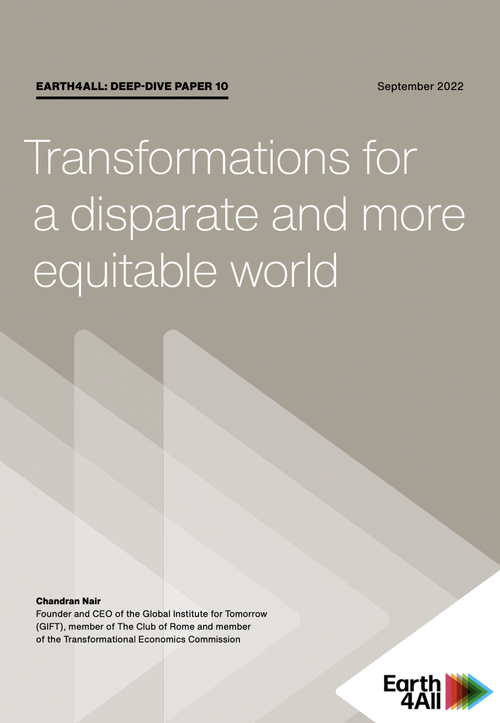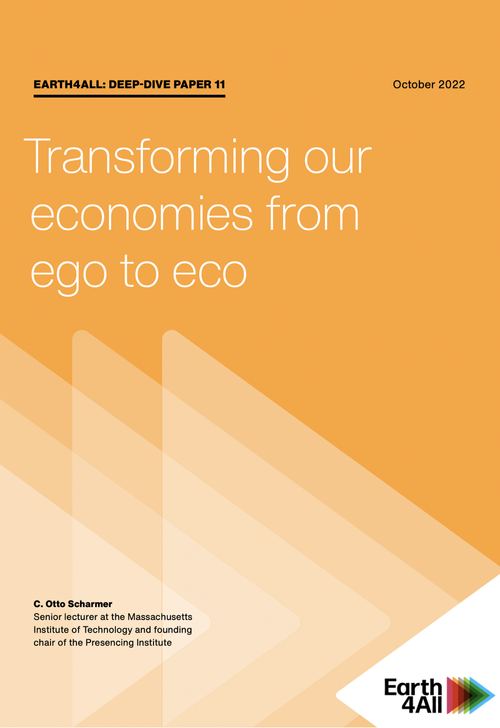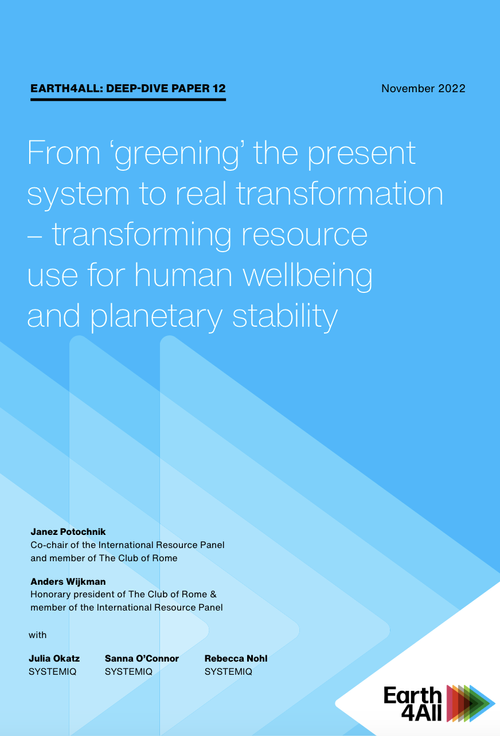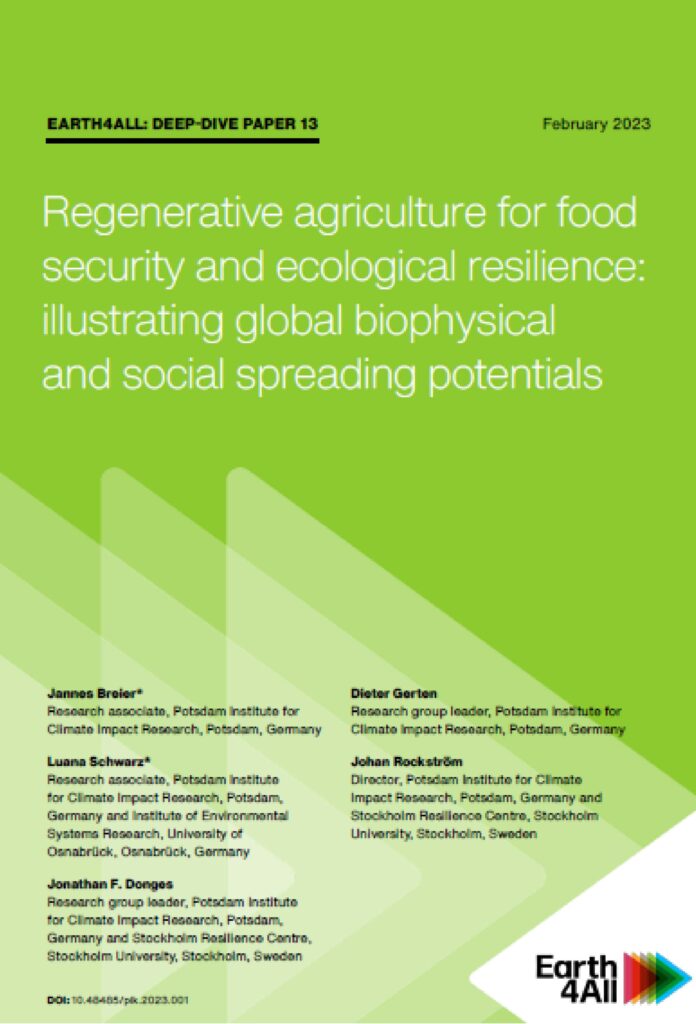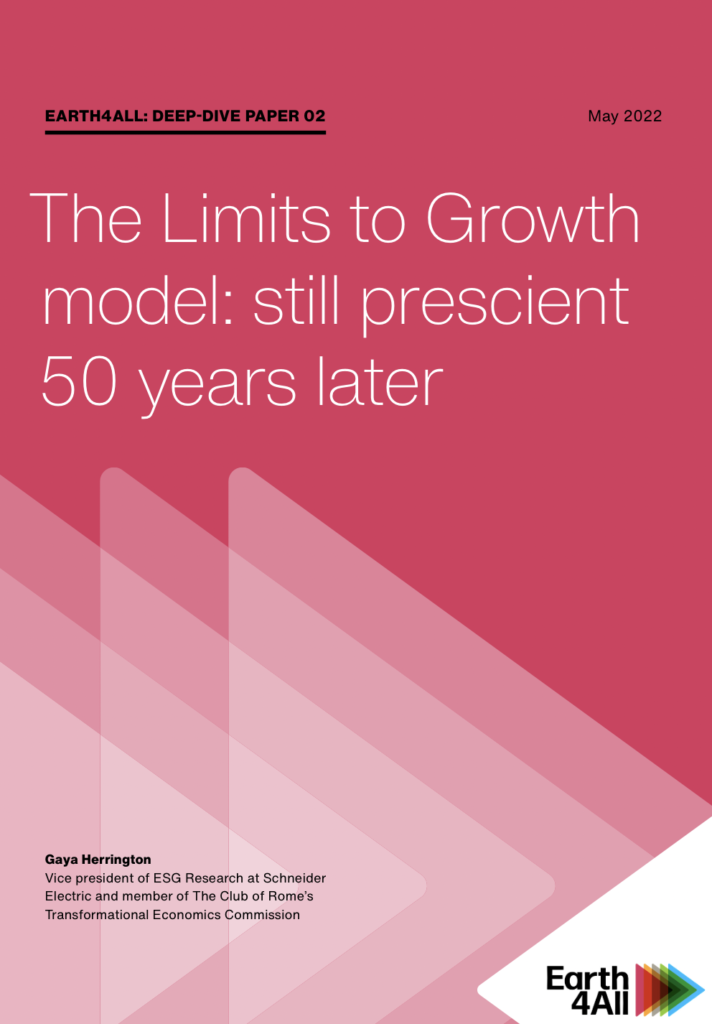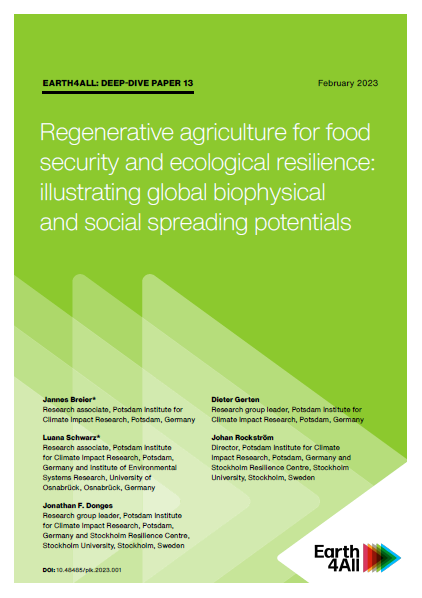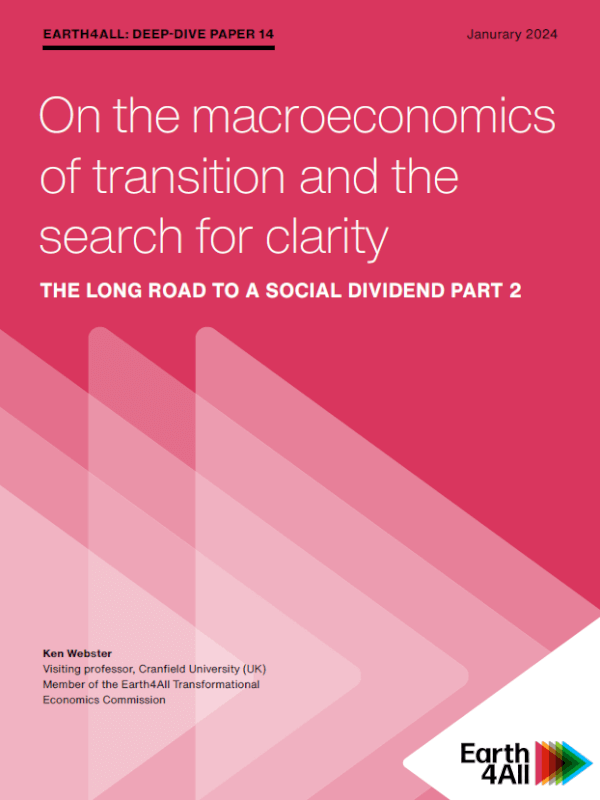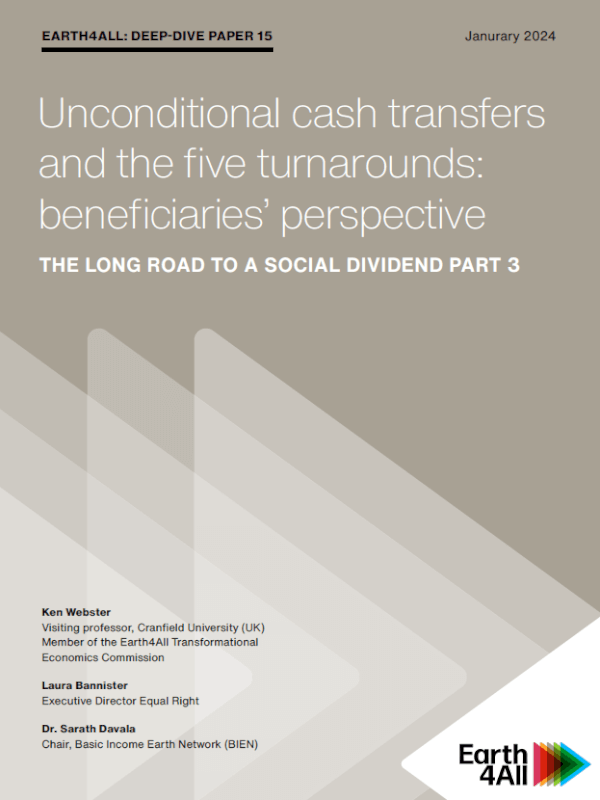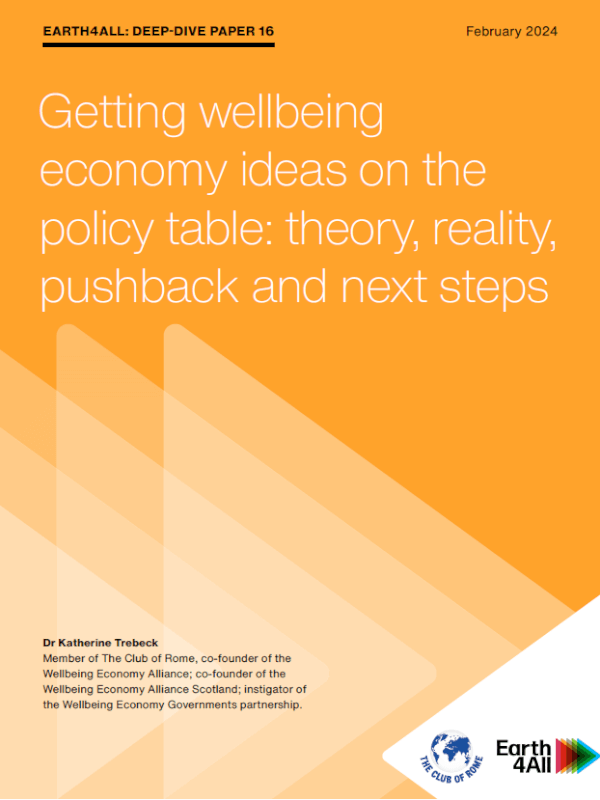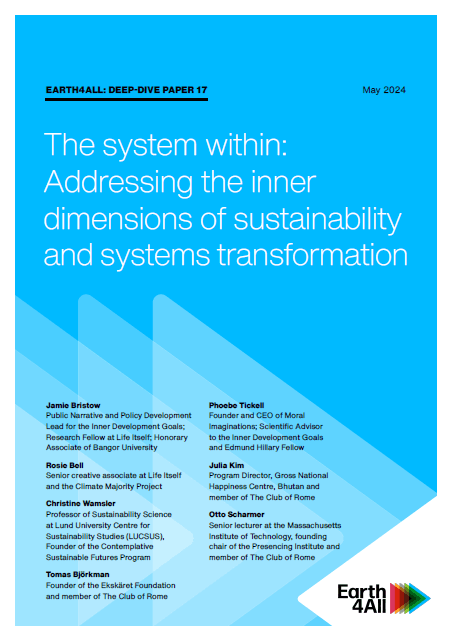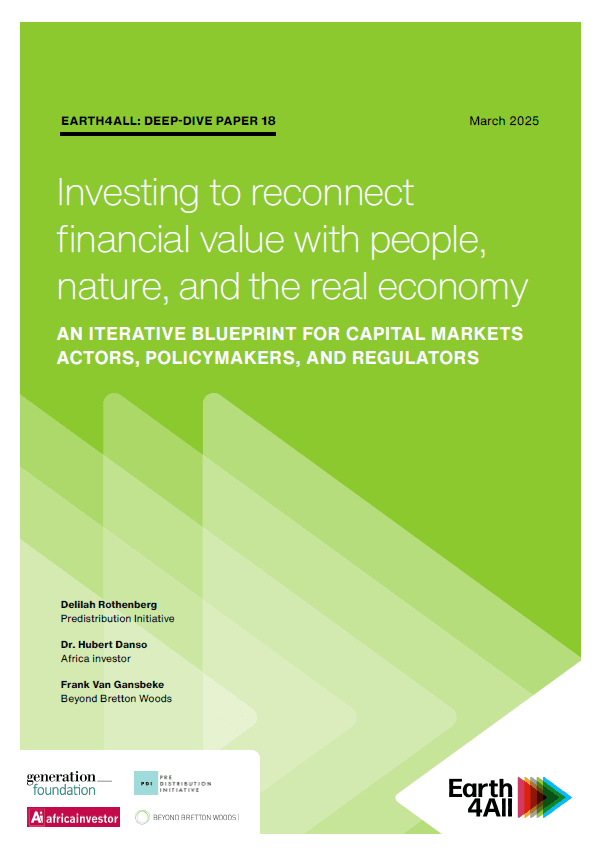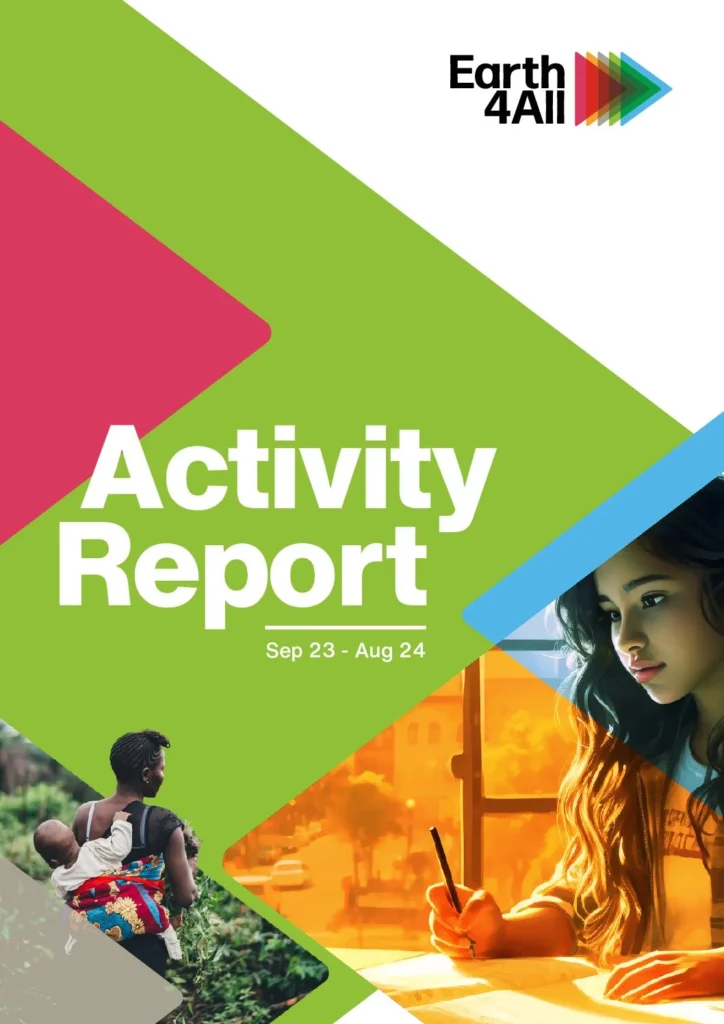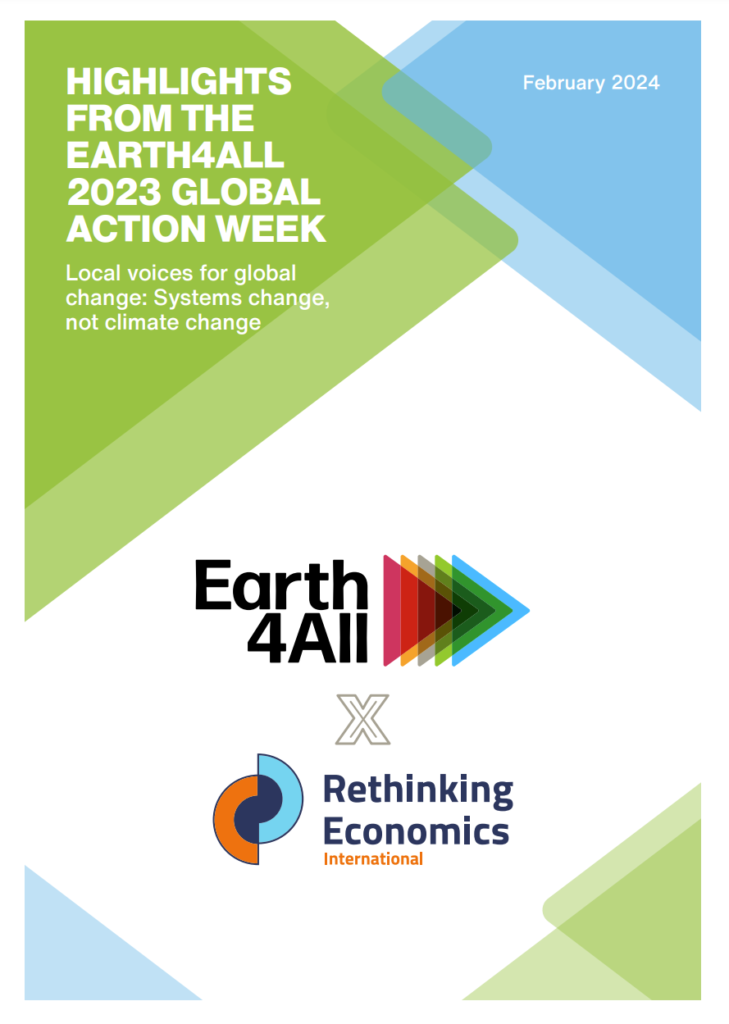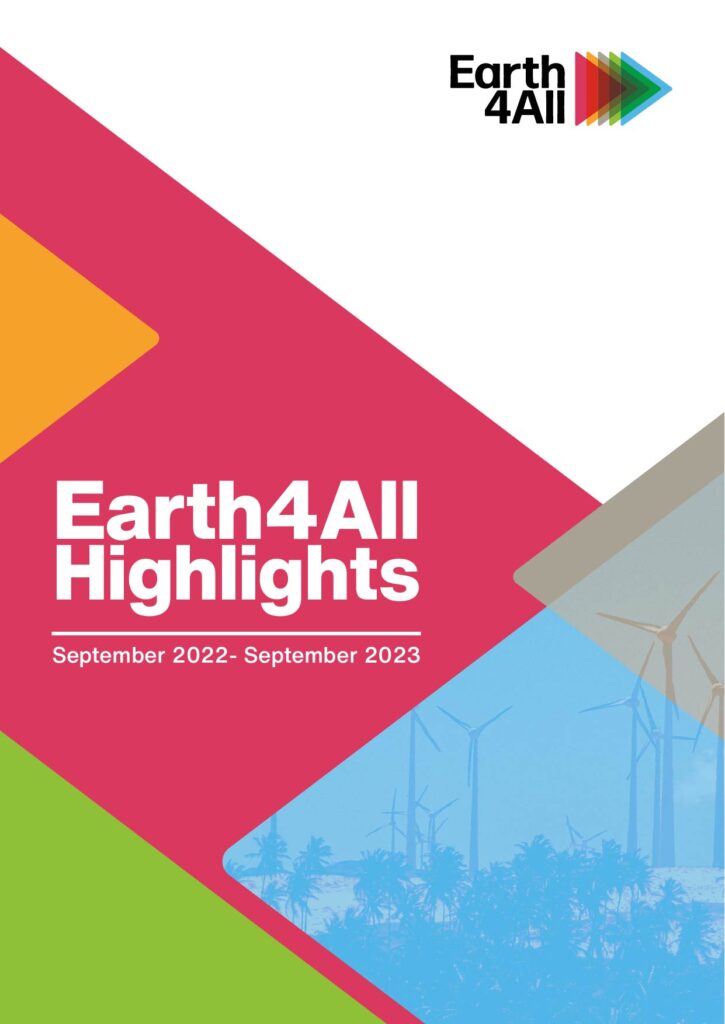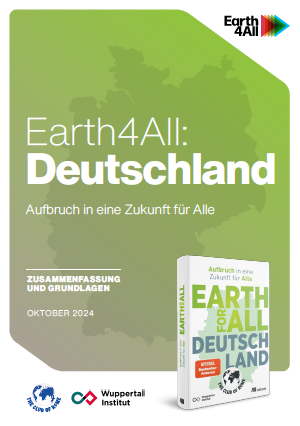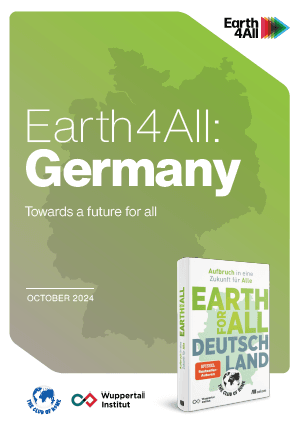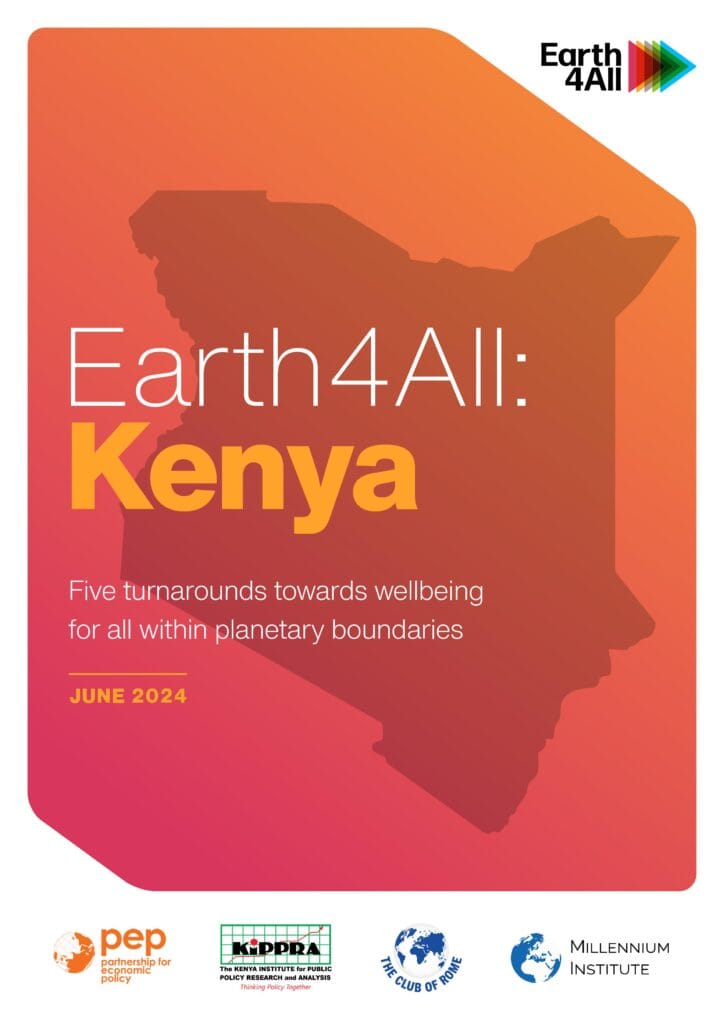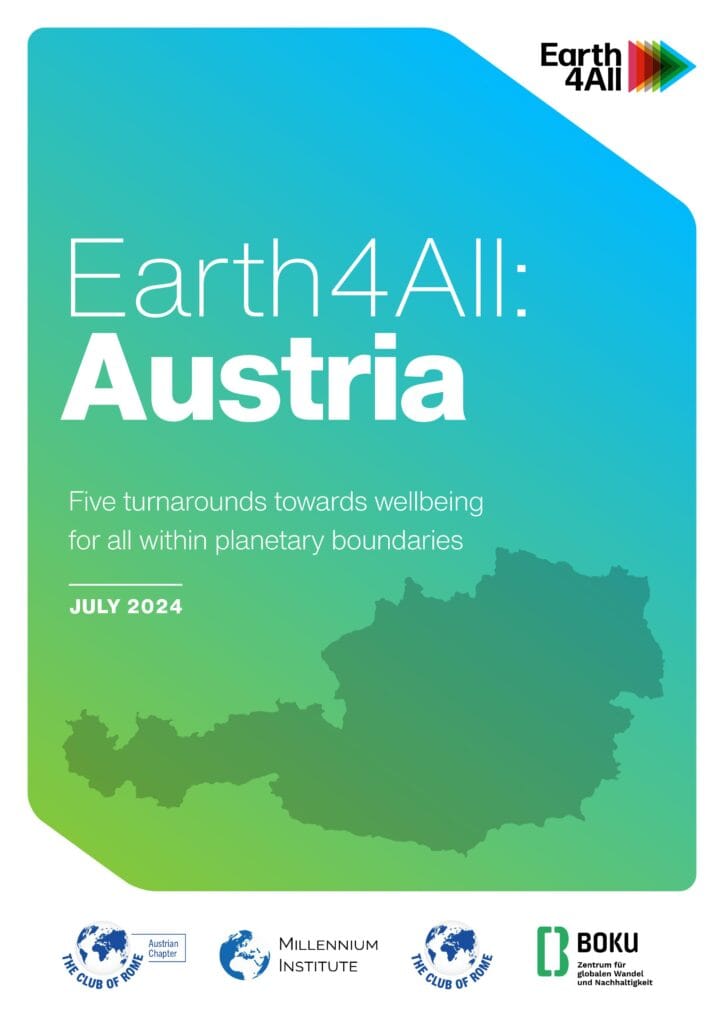Executive Summaries
Deep-dive papers
As part of the Earth4All project, collaborators have submitted deep-dive papers
to delve further into the issues and solutions needed to transform our economic system
and provide an equitable future for all on a finite planet.
Richard Wilkinson and Kate Pickett explore large income and wealth differences, and how those differences reduce the chances that our societies will respond adequately to the environmental crisis. It details six reasons for why greater equality is essential to a world facing the consequences of overshoot and the climate crisis.
Janez Potočnik and Anders Wijkman argue that the mismanagement of natural resources is the common cause of climate change, biodiversity loss, and pollution or health impacts. Furthermore, by identifying the root causes of these crises, together we can deliver policy responses that tackle them effectively.
Deep-dive papers
As part of the Earth4All project, collaborators have submitted deep-dive papers
to delve further into the issues and solutions needed to transform our economic system
and provide an equitable future for all on a finite planet.
Richard Wilkinson and Kate Pickett explore large income and wealth differences, and how those differences reduce the chances that our societies will respond adequately to the environmental crisis. It details six reasons for why greater equality is essential to a world facing the consequences of overshoot and the climate crisis.
This paper details five extraordinary turnarounds to address the environmental, ecological and socio-economic problems we face. It also explores the financial opportunities and costs in implementing the necessary actions.
Debamanyu Das, Shouvik Chakraborty and Jayati Ghosh investigate focus the possible adverse effects of well-meaning climate mitigation strategies, and consider how these adverse effects can themselves be mitigated.
This paper explores how to emerge from the multiple existential planetary emergencies, making three recommendations for transformative change. It also outlines why a living systems approach is needed to achieve global equity for a healthy planet.
This paper by Masse Lô proposes that the only way to prevail against the threats facing humankind is by living by the philosophy inspired by Zulu/Bantu term Ubuntu. That is, “a country becomes a country through other countries”.
This paper by Nafeez Ahmed explores new possibilities that could empower humanity to solve some of its most intractable problems: energy scarcity and volatility, the persistence of food insecurity and malnutrition, global poverty, and widening inequality.
Chandran Nair explores what transformations and trade-offs will be needed in a resource-constrained 21st century to reverse our supercharged self-disruptive trajectory.
This is the second paper in a series of three on the concept of a universal basic dividend (UBD), authored by Ken Webster. This paper aims to provide clarity on the implications of grounding a UBD in ethical and moral considerations, as well as to explore how a UBD fits within current macroeconomics, especially fiscal and monetary systems.
This is the third paper in a series of three about a universal basic dividend (UBD). The authors explore the implementation and impact of cash transfer trials, addressing questions about spending patterns, personal and family decision-making, as well as their implications for inclusion and empowerment.
Katherine Trebeck explores the reception and resistance faced by the wellbeing economy agenda across a selection of countries. The paper highlights both the opportunities and challenges, with the aim of informing and refining current approaches and tactics for new economic models centred around wellbeing.
This paper analyses the growing disconnect between financial markets and the real economy, and asks: how can we rebalance Earth and humanity’s balance sheet? It explores the role that actors across capital markets, including investors, policymakers and regulators, can play in in building a more regenerative and inclusive economy that supports the long-term wellbeing of people and nature.
Other publications
Callegari B., Stoknes P.E., People and Planet: 21st century sustainable population scenarios and possible living standards within planetary boundaries. Earth4All, March 2023, version 1.0.
Members of the Earth4All modelling team show that global population could peak just below 9 billion in 2050 in this special report for the Global Challenges Foundation.
Version 1.1 corrects some inconsistencies between figures 11-14.3 and their captions and descriptions in the main text. This does not affect the conclusions of the report.
Martin, M., Boakye, E., Boyd, E., Broadgate, W., Bustamante, M., Canadell, J., . . . Zhao, Z. (2022). Ten new insights in climate science 2022. Global Sustainability, 5, E20. doi:10.1017/sus.2022.17
Luana Schwarz, Earth4All and Potsdam Institute for Climate Impact Research contributed to this paper on the role of sustainable agriculture in climate change mitigation.
Collste, D., Cornell, S., Randers, J., Rockström, J., & Stoknes, P. (2021). Human well-being in the Anthropocene: Limits to growth. Global Sustainability, 4, E30. doi:10.1017/sus.2021.26
Members of the Earth4All modelling team track development of relevant indications for the Sustainable Development Goals 1-7 against GDP in seven world regions and globally.
Randers, J., Rockström, J., Stoknes, P., Golüke, P., Collste, D., and Cornell, S., (2018) Transformation is feasible: How to achieve the Sustainable Development Goals within Planetary Boundaries. A Report to The Club of Rome.
This report explores different pathways for the implementation of the Sustainable Development Goals (SDGs). It confirms that meeting the SDGs in an integrated fashion based on conventional growth policies is not possible. The only way to meet most of the goals by 2030 is to take transformational actions with system-wide effects.
Meadows, D. H., Meadows, D. L., Randers, J., and Behrens, W. W., (1972) The Limits to Growth; a Report for the Club of Rome’s Project on the Predicament of Mankind. New York: Universe Books
This report was the first to model our planet’s interconnected systems and to make clear that if growth trends in population, industrialisation, resource use and pollution continued unchanged, we would reach and then overshoot the carrying capacity of the Earth.
Country reports
Other publications
